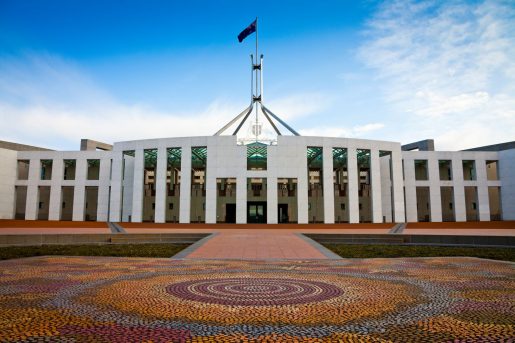
2022-23 Labor Federal Budget Highlights – what this means for you

The Federal Treasurer, Dr Jim Chalmers, handed down the Labor government’s first Federal Budget at 7:30 pm (AEDT) on 25 October 2022.
Described as a sensible Budget for the current conditions, it contains various cost of living relief measures including cheaper childcare, expanding paid parental leave and encouraging downsizing to free up housing stock.
Importantly, no amendments have been proposed to the already legislated Stage-3 individual tax rate cuts.
However, increased funding to the ATO’s Tax Avoidance Taskforce is likely to see the ATO more inclined to pursue debt and impose penalties and interest.
We are pleased to provide you with this brief summary of the main impacts for you, and as always, welcome your questions to our team.
Businesses
FBT and tariff exemptions for electric vehicles
- Electric vehicles under the luxury car tax threshold ($84,916 for 2022–23) will be exempt from FBT and import tariffs. To qualify for the exemption, the electric vehicle must not have been held or used prior to 1 July 2022.
Energy efficiency grants for SMEs
- Grants will be provided to small and medium-sized businesses to fund energy efficient equipment upgrades.
- The grants will be available to support studies, planning, equipment and facility upgrade projects that improve energy efficiency, reduce emissions or improve management of power demand.
Intangible asset depreciation measure — not proceeding
- The 2021–22 Budget measure to allow taxpayers to self-assess the effective life of intangible depreciating assets will not proceed.
- The measure was previously proposed to apply to certain intangible depreciating assets first held on or after 1 July 2023.
- The statutory effective lives for intangible depreciating assets set out in the table under s 40-95(7) of ITAA 1997 will continue to apply.
Fuel tax credits — heavy vehicle road user charge increased
- The Heavy Vehicle Road User Charge rate has been increased from 26.4 cents per litre to 27.2 cents per litre of diesel fuel, effective from 29 September 2022.
Individuals
Incentivising pensioners into the workforce
- Age and veterans pensioners will be provided with a once off credit of $4,000 to their Work Bonus income bank. This will increase the amount pensioners can earn in 2022–23 from $7,800 to $11,800, before their pension is reduced.
Incentivising pensioners to downsize
- The assets test exemption for principal home sale proceeds will be extended from 12 months to 24 months for income support recipients. The income test will also be changed, to apply only the lower deeming rate (0.25%) to principal home sale proceeds when calculating deemed income for 24 months after the sale of the principal home.
Income threshold for the Commonwealth Seniors Health Card increased
- The income threshold for the Commonwealth Seniors Health Card will be increased from $61,284 to $90,000 for singles and from $98,054 to $144,000 (combined) for couples.
Paid Parental Leave flexibility reforms
- The Paid Parental Leave Scheme will be amended from 1 July 2023 so that either parent is able to claim the payment and both birth parents and non-birth parents are allowed to receive the payment if they meet the eligibility criteria. Parents will also be able to claim weeks of the payment concurrently so they can take leave at the same time.
- From 1 July 2024, the scheme will be expanded by 2 additional weeks a year until it reaches a full 26 weeks from 1 July 2026. Both parents will be able to share the leave entitlement, with a proportion maintained on a “use it or lose it” basis, to encourage and facilitate both parents to access the scheme. Sole parents will be able to access the full 26 weeks.
Childcare subsidy rate increased
- The maximum Child Care Subsidy (CCS) rate will be increased from 85% to 90% for families for the first child in care and the CCS rate for all families earning less than $530,000 in household income will be increased.
Higher childcare subsidy rates for families with multiple children maintained
- The current higher Child Care Subsidy (CCS) rates for families with multiple children aged 5 or under in child care will be maintained, with higher CCS rates to cease 26 weeks after the older child’s last session of care, or when the child turns 6 years old.
Digital currency will not be taxed as foreign currency
- Legislation will be introduced to clarify that digital currency (or crypto currencies) will continue to not be treated as foreign currency for income tax purposes.
Superannuation
Minimum age to make downsizer superannuation contribution reduced
- Eligibility to make a downsizer contribution to superannuation will be expanded by reducing the minimum age from 60 to 55 years.
- The downsizer contribution allows an individual to make a one-off post-tax contribution to their superannuation of up to $300,000 per person from the proceeds of selling their home.
- Both members of a couple can contribute and the contributions do not count towards non-concessional contribution caps.
Proposed changes to audit requirements for certain SMSFs — not proceeding
- The 2018–19 Budget measure that proposed changing the annual audit requirement for certain self-managed superannuation funds (SMSFs) will not proceed.
- The measure had proposed to change the annual SMSF audit requirement to a 3 yearly requirement for SMSFs with a history of good record-keeping and compliance.
For more details please access our full budget report here

